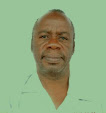To our citizens who are young at heart and
the old generation who may not remember, we need to know how the Republic of
Zambia came into being to enable us to understand our present political divergence
in the country.
Before 1911 the territory currently known
as Zambia was divided into two separate entities known as North-Eastern
Rhodesia and North - Western Rhodesia.
Both territories were under British
colonial rule.
The capital of North Eastern Rhodesia was
at Fort Jameson (currently known as Chipata).
The Fort was established to defend the
British ruled territory from other colonialists and hostile natives.
You may be interested to know that the
"Policemen's language", commonly known as "Nyanja"
originates from Fort Jameson.
It was developed as a dialect from the
local languages of African tribes found in North-Eastern Rhodesia.
The capital of North Western Rhodesia was
initially at Kalomo.
It was the first administrative centre of
Northern Rhodesia, serving until the capital city was established at
Livingstone in 1907.
The British colonial masters then merged
the two into one territory know as Northern Rhodesia after 1911.
The capital of Northern Rhodesia was
eventually moved to Lusaka.
You may be interested to know that the name
"Lusaka" originates from a Chief who was found around there called
Lusakasa , which the British abbreviated to Lusaka.
There is a school in Lusaka called Lusakasa
which is named in honour of the Chief.
Northern Rhodesia and the neighbouring
British ruled territories of Nyasaland (now Malawi) and Southern Rhodesia (now
Zimbabwe) were then merged into a Federation of Rhodesia and Nyasaland.
The administrative capital for this
Federation was set at Fort Salisbury, later to be called Salisbury until
independence in 1980 when Southern Rhodesia became the Republic of Zimbabwe
when it was renamed Harare.
After the
establishment of the Federation, there was resentment
amongst the black nationals who were not happy with the way the wealth from the
three territories were managed.
It was felt that most of the wealth from
these territories was used to develop Southern Rhodesia more than the other two
territories.
Salisbury became more developed than Lusaka
and Blantyre (now Zomba) which was the capital of Malawi at independence. Even
today this historic fact is still evident.
The capital of Malawi was later shifted to
Lilongwe.
This brought about the call for the
disbandment of the Federation of Rhodesia and Nyasaland by black nationalists
(later to become the politicians) of these territories.
The Federation of Rhodesia and Nyasaland
came to an end in 1953.
Thereafter, the African nationalists in the
three territories demanded independence of these territories from British colonial rule.
This saw the independence of Northern
Rhodesia and Nyasaland from British rule in 1964 to become the Republics of
Zambia and Malawi respectively.
The white administrators in Southern
Rhodesia did not want the country to be ruled by the native blacks, so on 11th
November 1965 they declared UDI (Unilateral
Declaration of Independence) from British rule.
The UDI saw the begin of a bitter 15-year guerilla bush war when the
blacks in Southern Rhodesia , which was called Rhodesia after UDI, resorted to
fighting the white rebels (under Ian Smith) from the bush.
This war affected the Republic of Zambia
because the Freedom Fighters took refuge in the country and the rebels in
Rhodesia used to bomb certain parts of the country in pursuit of the Freedom
Fighters.
When the Liberation Centre was bombed by
the white rebels in the 70s I was in Lusaka as a student at UNZA.
As students at UNZA we were conscripted
into the Zambia National Service to go for military training in 1973 in order
to protect the country from rebel attacks.
The UDI brought a lot of economic hardships
to the Republic of Zambia in many ways.
The county was subjected to border
closures, military attacks and siege by the white rebels in Rhodesia, the white
Apartheid racist regime in South Africa and the Portuguese ruled territories of
Mozambique and Angola.
Under the leadership of Dr. Kenneth Kaunda,
who became the President of Zambia in 1964 (he was called Prime Minister then)
the country managed to pull through these hardships.
This part of our history needs a separate
writing about it!
As stated earlier, North-Eastern Rhodesia
and North -Western became Northern Rhodesia in 1911.
Northern Rhodesia was part of the
Federation of Rhodesia and Nyasaland until 1953 when the Federation was
disbanded due to African nationalist pressure.
Northern Rhodesia became the Republic of
Zambia on 24th October 1964.
Now coming back to our present voting pattern
in our Elections, you may notice that these are based on the historic basis of
the two former British ruled territories of North-Eastern Rhodesia and North-
Western Rhodesia.
A lot of people talk without knowing where
we are coming from a Nation.
Ignorance is our greatest enemy today and
if not checked it could lead to animosity in the country.
The Bible teaches us that: -
“My people are destroyed from lack of
knowledge. "Because you have rejected knowledge, I also reject you as my
priests; because you have ignored the law of your God, I also will ignore your
children.”
The challenge of our current political
leaders is to keep the unity of this country so that it is not again divided as
the British colonialists did before 1911 and it must remain a ONE ZAMBIA and a
ONE NATION!
AMEN
!!
REFERENCES :
For those who may be interested to read in
detail about the history of our beloved country, you may get details from the
links given below, from Libraries or research online, etc.
1) North
- Eastern Rhodesia
2) North-
Western Rhodesia
3) Historical Atlas – The History of Zambia


